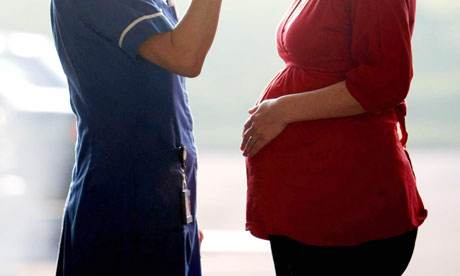
The Royal College of Midwives has backed NHS guidelines to ask pregnant women to take breath tests to prove if they smoke. While the effects of smoking while pregnant can be devastating for mother and foetus, and education and quitting services should, of course, be readily available to pregnant smokers, the introduction of breath tests feeds into a culture that fails to respect the autonomy of pregnant bodies.
Testing pregnant women to see if they smoke is a myopic solution to a wider social problem, to cycles of addiction tied up in class and family structures. But focusing on the pregnant woman rather than social and economic context is no new thing.
We like to frame things in terms of individual choice – it makes them tidier, simpler, and easier to relinquish responsibility for. Look at that pregnant slattern – puffing away. She is choosing to engage in behaviour that will harm her child. It is disgusting. She ought to be locked up. It has nothing to do with me.
Another reason we focus on the pregnant body rather than on social context is that pregnancy brings the unhealthy behaviours associated with disadvantage into high relief. However, it is important to remember that the pregnant person is a locus of these behaviours, not the cause of them.
Something strange happens to social perceptions of women's bodily integrity when they become pregnant. I have a friend who couldn't believe the licence that people – sometimes even complete strangers – took with touching her when she started to show. She recalls thinking: "Hello! I'm still in here! It's still weird for you to randomly start rubbing my tummy." And, of course, I wouldn't be the first to remark that if society directed even a fraction of the energy it dedicates to concern about the life of the unborn to the basic rights of living children, we'd live in an infinitely more just and caring world.
For those who point out that the autonomy of pregnant women is complicated by pregnancy, I say: sure. But no more and no less so than the autonomy of any parent is complicated by having children. We all have the legal rights to smoke our lungs out and drink gin until our oesophagi bleed. These rights don't disappear during pregnancy, but a moral imperative should take precedence. If you're smoking and drinking, you're smoking and drinking for two, and that's not cool.
But what is the difference between a pregnant mother engaging in these behaviours, and any parent engaging in these behaviours around their children? Passive smoking presents a risk to children, obviously, but even more significant is the increased likelihood of the children of smokers becoming smokers themselves, with all the attendant individual health risks, and, if they happen to be women, with risks for their unborn children. My argument is that, when you look at the bigger picture, there is as strong a moral imperative for all parents to stop smoking as there is for pregnant women.
Perhaps the NHS should set up spot checks on motorways and, when they see a parent smoking in the car, pull them over and breathalyse their children for CO2 levels, before distributing targeted educational material. I can see Mummy or Daddy becoming rather irate in this situation, can't you? It's my fecking car. They're my fecking kids. I'm not doing anything illegal. As much as we might think that Mummy and Daddy are behaving irresponsibly by smoking with children in the car, this NHS intervention would be an inappropriate infringement of personal autonomy. It's OK to do it to pregnant women though, because their bodily autonomy doesn't count.
Testing pregnant women, blaming pregnant women and shaming pregnant women serves to remind them that their bodies, once incubating future humans, are not their own, but the world's to prod and poke and pronounce upon. Did you know that pregnant smokers are more likely to give up if their partners are non-smokers? Should we breathalyse fathers-to-be too? I am not being flippant. People don't smoke in vacuums (no oxygen), they smoke in social and economic contexts. To create pregnant women who do not smoke we need, first and foremost, to create people who do not smoke.
Instead of setting pregnant women tests they won't pass, tests designed to make them feel guilty, we need to look at the reasons – economic, social and individual – that they started smoking in the first place. This involves examining class and family structures and finding ways to change entrenched attitudes to tobacco. It involves recognising that the idea of individual choice in relation to smoking is not a simple one. It involves showing concern for the health of women who are not pregnant and avoiding hysteria and coercive measures we regard to the health of those who are. It's a harder task than breathalysing people, but you're not going to change a society's smoking habits by heaping shame on the pregnant minority.

